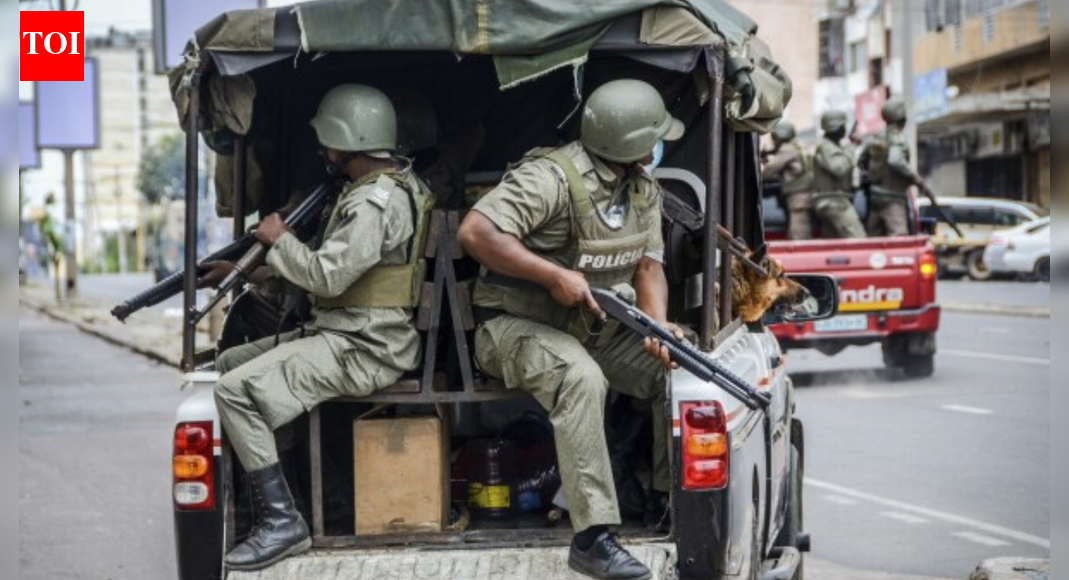ISIS Gains Freedom in Northern Mozambique After USAID Withdrawal Amid Rising Violence in Cabo Delgado
 Mozambique
Conflict & Humanitarian Aid
Mozambique
Conflict & Humanitarian Aid

ISIS gains ground in northern Mozambique following the abrupt withdrawal of USAID, exacerbating conflict in the gas-rich Cabo Delgado region and impacting vital
A Resurgent Threat: ISIS Exploits Aid Vacuum in Northern Mozambique
A disturbing incident last month in Mocimboa da Praia, northern Mozambique, signals a troubling resurgence of ISIS-linked activity, coming just as the US Agency for International Development (USAID) has largely ceased operations in the country. Eyewitness accounts from the mosque’s imam describe armed men, identified as ISIS affiliates, entering the sacred space, compelling residents to gather, and then unfurling an ISIS banner after seizing the microphone. This brazen act, described by one attendee, Sumail Issa, who discreetly alerted the military, underscores the group's renewed, unchallenged presence. Social media footage even shows residents recording the event rather than fleeing, further illustrating the militants' perceived impunity.
Cabo Delgado's Lingering Conflict and Fragile Stability
Mozambique's gas-rich Cabo Delgado region has been a hotbed of insurgency for eight years, plagued by brutal killings and territorial seizures. The coastal town of Mocimboa da Praia itself was under insurgent control from August 2020 to August 2021, leading to widespread displacement and devastation. While joint Mozambican and Rwandan forces, deployed at Maputo’s request, managed to restore a degree of stability in subsequent years, prompting many displaced residents to return, this fragile peace appears to be unraveling.
The Impact of USAID's Abrupt Departure
This renewed insurgent assertiveness coincides directly with the significant rollback of USAID programs. Following an executive order signed by then-US President Donald Trump in January, numerous initiatives designed to strengthen governance, counter extremist influence, and provide crucial humanitarian aid were either entirely cut or drastically reduced. These programs were vital for a nation like Mozambique, where over half the population lives below the poverty line and the median age is a youthful 17.
In 2024 alone, USAID contributed $586 million, a sum equivalent to roughly 3 percent of Mozambique's Gross Domestic Product. At the time of its effective shutdown, USAID had over $2.4 billion in active or planned programs dedicated to essential services such as emergency food distribution, water and sanitation, education, and local governance support. Although funding for HIV/AIDS treatment continues in a diminished form, estimated at around $160 million, the broader withdrawal has left a gaping void.
Fueling Recruitment and Global ISIS Activity
USAID initiatives in Cabo Delgado specifically targeted vulnerabilities that extremist groups exploit. In Mocimboa da Praia, grants supported projects for motorcycle taxi drivers and fishermen – sectors where poverty and limited opportunities make young men prime targets for recruitment. The abrupt cessation of these vital programs, as a former senior USAID official noted, has "opened the door for insurgents to act with greater freedom and impunity."
This localized surge mirrors a worrying global trend. Data from the Armed Conflict Location & Event Data Project (ACLED) reveals that Africa accounted for a staggering 79 percent of ISIS's worldwide activity between January and October. In Mozambique, ISIS operations reached their peak in October, representing 11 percent of the group’s global violent incidents, further highlighting the critical link between aid withdrawal and escalating conflict. The vacuum created by reduced international support directly empowers extremist groups, posing a grave threat to regional stability and human security.